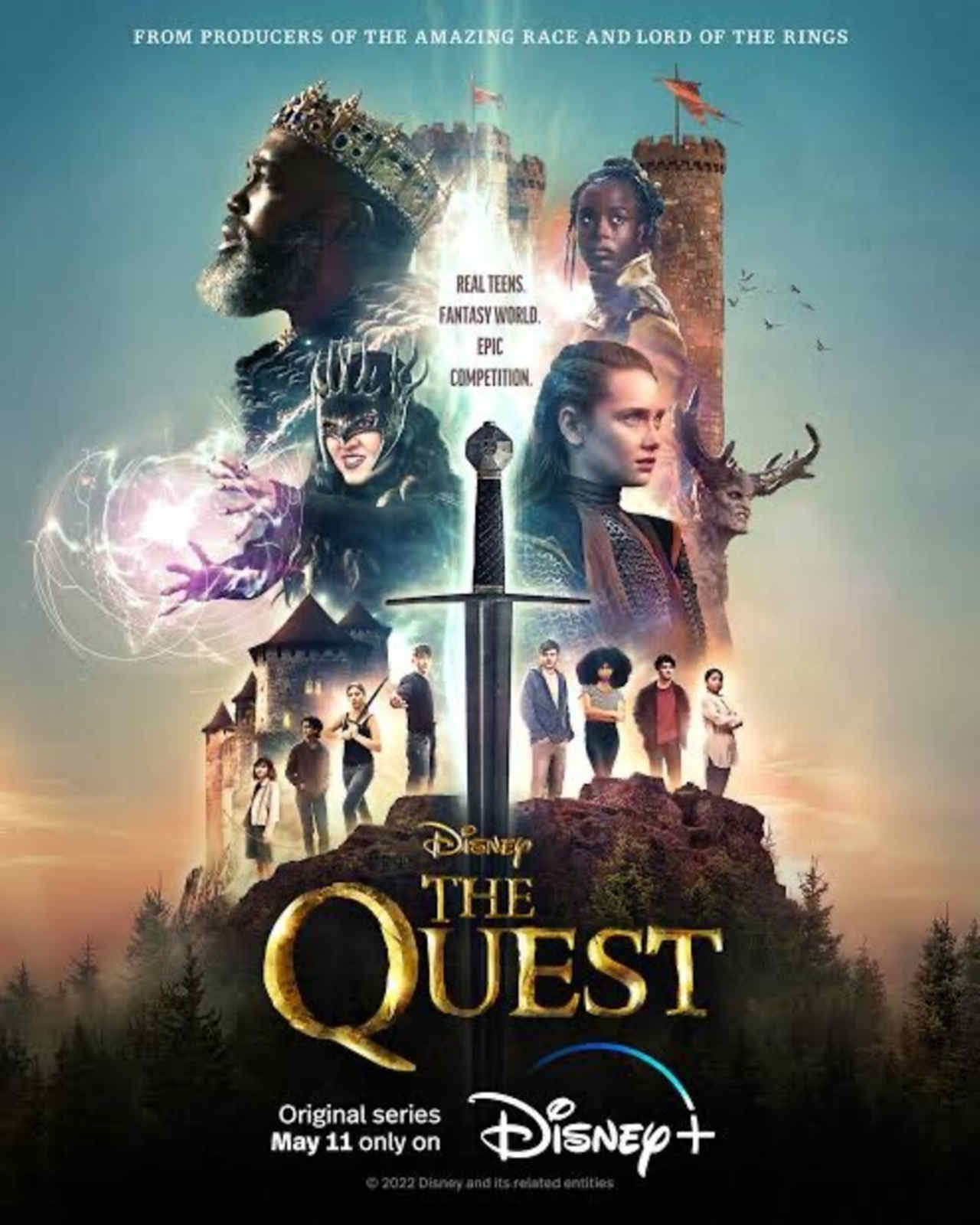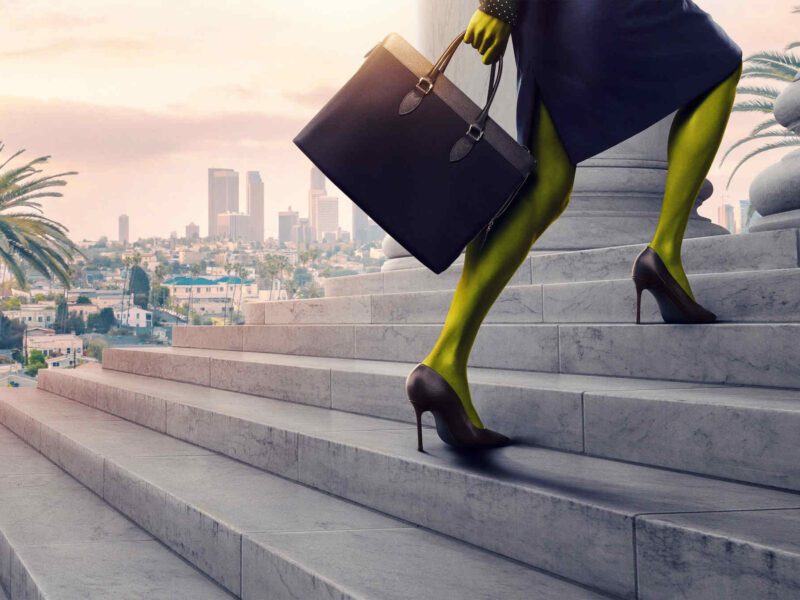
Bringing the world of The Quest to life: A conversation with Mark Kohl
No doubt you would have heard of Disney+’s new series The Quest, the show that blends the genres of fantasy and reality. It’s something that has never been done before, and Director of Photography, Mark Kohl had to make decisions that had never been made before as a result.
With a career that has spanned over 30 years, Mark Kohl is one of the most respected cinematographers in the world of television and feature films. He has shot features for Francis Ford Coppola’s American Zoetrope production company and served as the Director of Photography on Aaron Spelling’s Safe Harbor. In addition, Mark has directed and shot over 130 episodes of America’s Most Wanted and lensed over 15 films such as Lonely Hearts with John Travolta and James Gandolfini and HBO’s Recount with Kevin Spacey and Dennis Leary. In between, Mark Kohl has managed to deliver more than 2000 commercials to hundreds of agencies and clients such as McDonald’s, Honda, Ford, AT&T, Pizza Hut, Carnival Cruise Lines and Dick’s Sporting Good’s.
We were honored to sit down with Mark, and chat about his career and his work on The Quest.

| Congratulations on the success of The Quest! It must have been a very exciting production to work on.
Yes, working on The Quest was a very exciting experience. It is a new genre of television. We created a new hybrid space between scripted fantasy and reality competition, so there was no real blueprint to follow that had been done in the past. We had to create a whole new way of approaching this project. Could you describe what a day on set looked like for you? In a word, daunting (laughs). We were blending a movie with reality, on a reality schedule and reality budget. Competition shows are somewhat shot in real-time. So, we would go from shooting a movie with scripted blocking to chasing the contestants through the forest at night. What made The Quest different from other productions you have worked on? Since this was a new type of format, I had to approach this in a new way. Every crew member and piece of equipment had to fit both the scripted movie world, as well as be sustainable in the reality competition space. Generally, there are crew members and equipment that solely work in a scripted world and equipment that serves the reality documentary space. So we were going down a new path. As Director of Photography were there any challenges that stood out making a period piece as opposed to modern-day? I guess the challenge from the Director of Photography‘s viewpoint is the question of what is the main source of illumination in the scene. Obviously, modern-day scenes have many light sources in which we can motivate light, but in a fantasy world before electricity, the main sources of light were direct sunlight, indirect sunlight, moonlight, and of an assortment of torches, fire, lanterns, etc. So production designer Dan Boyd and myself strategically placed torches, and fire pits based on where they would serve as key lights in the scene we’ve built. Flicker box units would replicate the fire or torches, which I could move around based on the blocking of the scene. Since a lot of this was illuminated with flickering organic flame sources, I wanted to stay away from any digital-looking flicker effects. So I went to old school tungsten incandescent lightbulbs rigged to magic gadget flicker dimmer systems. This created a natural analog flickering light source. We had lots of these all over our sets.
What drew you to cinematography? It wasn’t an overnight thing becoming a cinematographer. I guess I started my interest in lighting while in middle school taking art classes. When looking at still life to draw, the first thing you examine are shadows and where the light is coming from. When you analyze the shadows, you analyze the type of light that is hitting the subject. Is it hard light? Soft light? When I was somewhere around 10 years old, my uncle had a Kodak Hawkeye Brownie camera that he gave me, and he had an 8 mm movie projector. I would watch 8 mm movies in the basement and then shoot pictures on the Hawkeye Brownie camera. I guess that’s where my interest in film began. I was a guitar player as well, and I went down the music road for a while. I didn’t really enjoy playing in bands and clubs much, and I didn’t see much future in it as a career. One of the guys that were in our lighting department and one of my bands worked at a large camera and production company and he asked me if I was interested in working there as they had an opening in the video department. I went down and interviewed for the job and the manager hired me. I was 19 years old. The first time I touched a large broadcast video camera, it felt easy and like part of me. It was then I knew what I wanted to do. That was over 30 years ago I’m still at it today. What was your path to working in film production like? That question would take a week to answer. I’ve gone through freelance life, I’ve owned several production companies and traveled all over the world, I think I’ve been on over 4000 shoot days in my career. Literally shooting every format, every genre, almost anything you can imagine in almost any location you can imagine. Looking through your bio, you have worn many hats on different productions. Do you think people looking to enter the world of production should experience different roles on the film set to gain a greater understanding of filmmaking as a whole? 100%. And here’s why… I think people have a preconceived notion of what they wanna do in production before they’ve ever been on a production set. In real-life, production is very different than what you might think. So production is a large group of artists. Every single crew person is an artist in their own right. A film set is when every art form comes together. You have photography, costumes/wardrobe, make-up, sound and music, writing, architecture, and production design, producing and budgeting, acting, editing, lighting, grip, etc. Every art form is in one location at the same time. So you might find another position that speaks to you more than the one you thought you might like. Have you got anything exciting coming up that you are able to tell us about? I have many things that are exciting coming up potentially, but I can’t share until we are actually in production and shooting. What advice would you give to people looking to get into film production, and in particular cinematography? To get on set as much as possible. To develop a work ethic, unlike any other work ethic there is. Pay attention, listen more or speak less, and realize that the smartest people in the world make movies and you were there to learn. After 30 years of shooting and production and I’m learning every single day. Also to have incredible integrity. Show up early, pay your bills on time, treat people with respect, set boundaries, etc. I find that longevity in this business is in your integrity as a person. I have found that as I grow as an individual my work grows as well. We are shooting and producing creative content through our own life experience lens. The more life experience you have the more interesting your work becomes. This is what makes filmmakers different. All cameras and equipment are pretty much excellent these days, so what makes a film production that you do different is the way you tell the story. |








